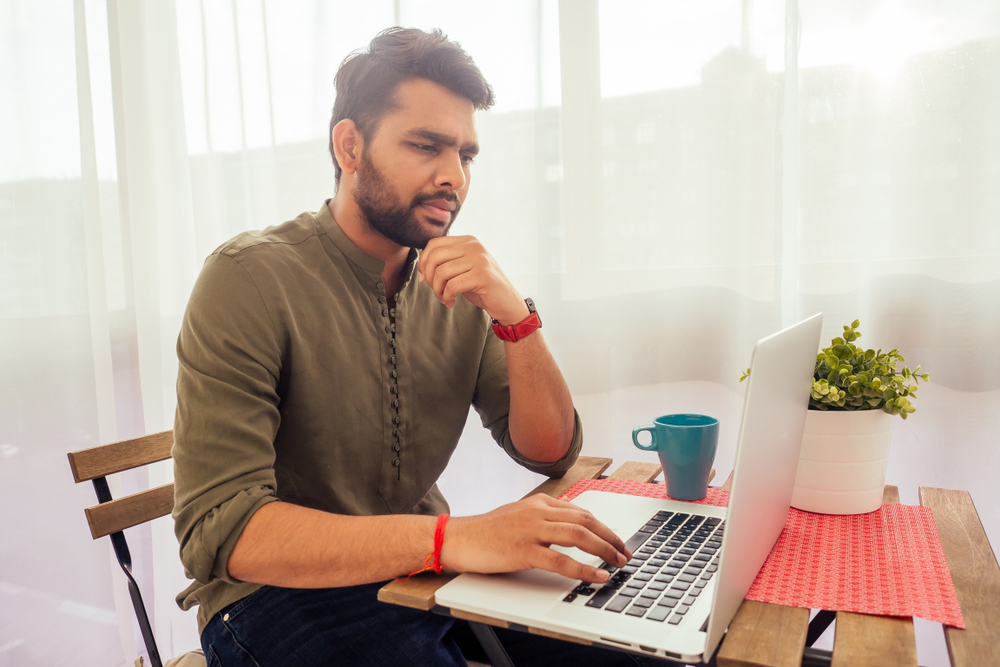As social distancing becomes a necessary precaution to combat Covid-19, most of our familiar routines have been disrupted and many of us have been jolted out of our comfort zones. While worry and stress are quite natural reactions, it is not uncommon for many of you to be experiencing high levels of anxiety or the beginning stages of depression. The current climate of uncertainty may be a trigger for some of you, especially those who are already battling mental health issues. So, for starters, please know that it is okay not to be okay and that you are not alone.
If you’re a professional who is suddenly facing an indefinite period of work from home, or someone in self-quarantine, embracing the philosophy of JOMO — the Joy of Missing Out — might be just what you need right now. Here are a few things you can do and keep in mind to take care of your emotional wellness and maintain a positive outlook.
Be thankful
- First and foremost, recognise that you are lucky enough to have a job that can be done from home.
- Second, be thankful that your manager or boss realises that, trusts you, and cares enough for your wellbeing to sanction a WFH.
- lThird, appreciate the little things like no rush-hour traffic, no facetime with that one toxic co-worker, and lunches that you can actually have at lunchtime instead of a hurried four o’clock.
- And don’t forget the joys of a non-existent commute — not only are you saving a bit on fuel or cab fare, the planet also has the chance to breathe a little greener.
Workdays and work hours
- Stick to your usual work routine. Yes, this includes slipping on work-appropriate attire. There’s no need to be suited and booted, but get out of your PJs. Smart casuals should do it. Also, pick a relatively quieter spot at home with a table or desk. Stay away from working on your laptop on your bed.
- Set boundaries. This applies to both your family and your office people. Let your family know that you are not to be disturbed between X to Y hours and stick to that. Likewise, let your co-workers know the same. WFH works best when you can be reached during mutually agreed-upon hours. This ensures that neither are you goofing off, nor are you burning yourself out by overworking.
- Stay connected. Miss team briefings or talking to your favourite co-workers? Schedule short and sweet conference calls or video calls at the beginning or the end of the workday to make sure everyone’s on the same page. And if need be, check in with the work WhatsApp group when logging in and logging out.
Weekly offs and evenings
- Read and Write. Reread childhood favourites, nightstand tomes you’ve put off stating lack of time as an excuse, or start writing that book you’ve secretly wanted to. Other options include journalling or even writing letters. Yes, actual letters. You know, the kind that can be posted. Put pen to paper, literally.
- Learn something fun. Try your hand at a new hobby or resume an old one. Origami, gardening, knitting, a new language, baking. There’s loads to learn with YouTube at your fingertips.
- Upskill. Being a lifelong student has never been more important. Explore the latest developments in your industry and sign up for free or paid online courses. And while you’re at it, update your resume by polishing it or giving it a complete makeover. Think about the career goals you’d like to fulfil in the next one, three, and five years. In fact, why not try making a career vision board? Learn a new language which you have been thinking for long.
- Practise genuine self-care. This doesn’t just mean bubble baths or face masks, though they’re always welcome. This is the perfect time to rest well and sleep better. Go ahead and establish a pre-sleep routine and a bedtime. Yes, these exist. Even for adults. Also, don’t forget to continue exercising. Some movement will be necessary to offset a couple of inevitable couch potato days spent watching reruns.
- Connect and reconnect. Make phone calls, video calls and reconnect with friends and family you haven’t spoken with in ages. The people you always mean to call, but don’t because it gets buried under your to-do list. Grandparents make it to the top of the list. No exes or ‘it’s complicated’ maybe relationship people please.
- Give social media a rest. Now because you can’t meet people in person, don’t overdo the social media. Just because you can look at it all day doesn’t mean you should.
A special note...
...for Working Parents with Young Children or Special Needs Children. The major change in your child or children’s regular routine — schools closing temporarily — will affect each child differently. While shyer children may feel safer and happier to be at home, special needs children or regular children habituated to activity-packed routines (attending multiple hobby and/or sports classes) may have a harder time. As a parent, too, you’re suddenly finding yourself spending a lot more than the usual facetime with them, especially if you and other family members are working from home. While this is a wonderful opportunity for you and your family to bond with your child in new ways, this may also lead to increased stress.
Thus it is vital to proactively monitor the words and the body language of people at home or those in regular contact with your child. Keep children away from adult conversations where the family may be venting to express their fears and frustrations.
Your child’s home is their safe space, so please do not let them hear words, see gestures, or be at the receiving end of any behaviour that makes them feel like a burden or an inconvenience. Read to them, watch television with them, play with them, or even just sit with them while they do their own thing.
At the end of the day, all children — yes, even your sullen teenagers who don’t seem to want to exchange two sentences — ultimately just want to feel safe and loved.
To end, this is a difficult time where we all need to support each other. If you know someone who has mental health issues, call and check on them. And if you’re feeling too overwhelmed, reach out. Remember, there’s no shame in asking for help. You are not alone.
Minu Budhia, a psychotherapist, counsellor, founder of Caring Minds, ICanFlyy, Cafe ICanFlyy, andTEDx speaker, answers queries related to mental healthcare and adolescence issues. Send your queries to askminu-budhia@caringminds.co.in or t2onsunday@abp.in











